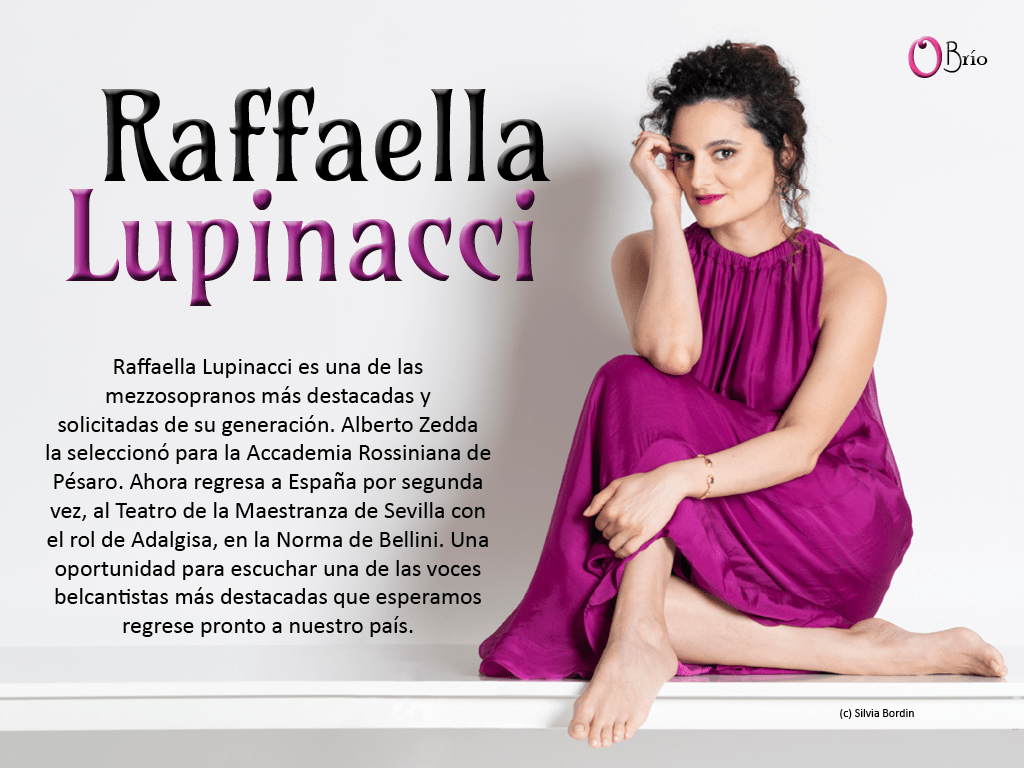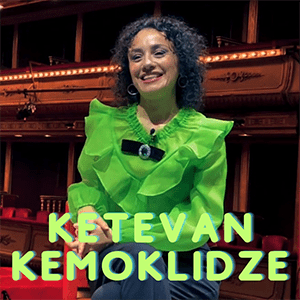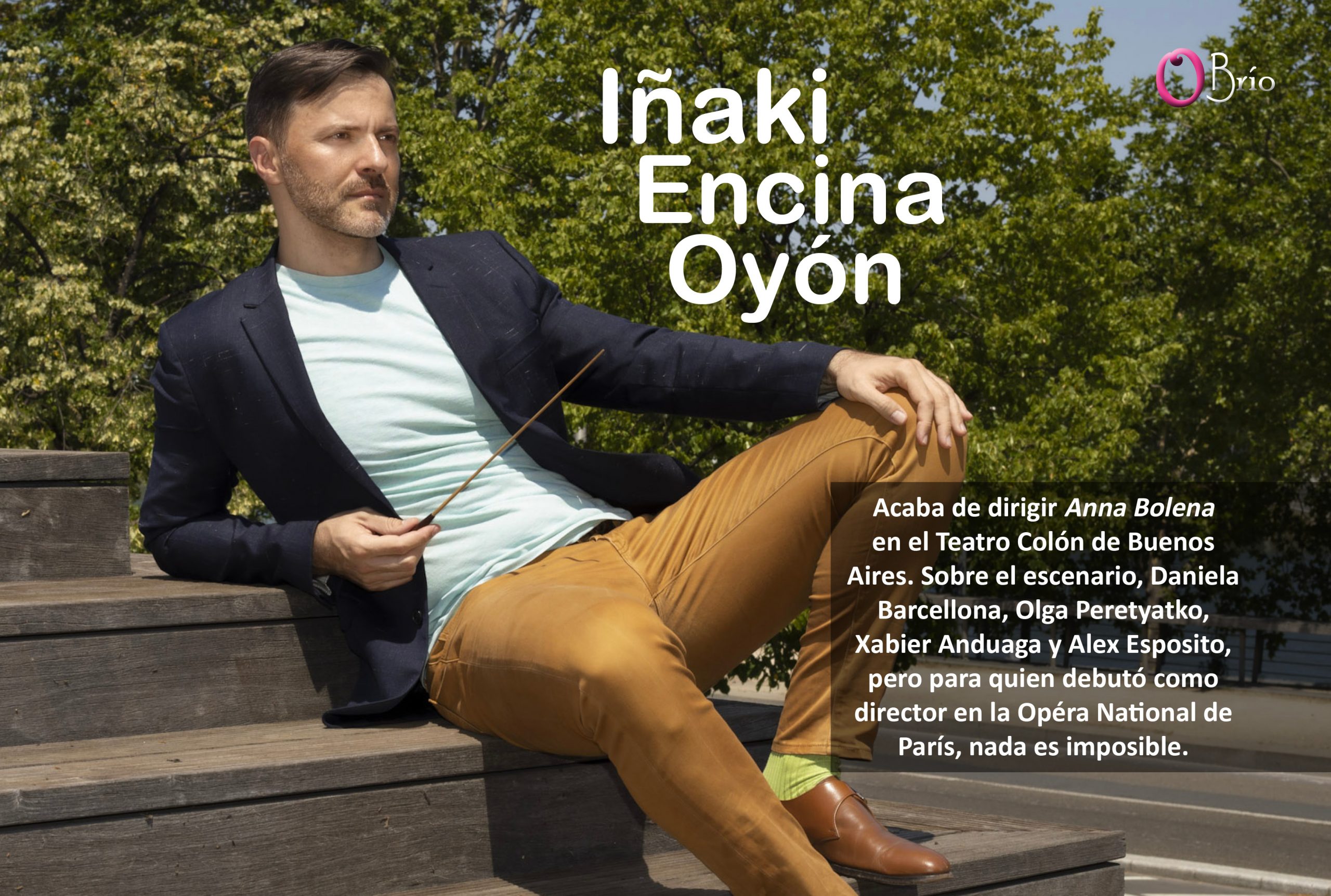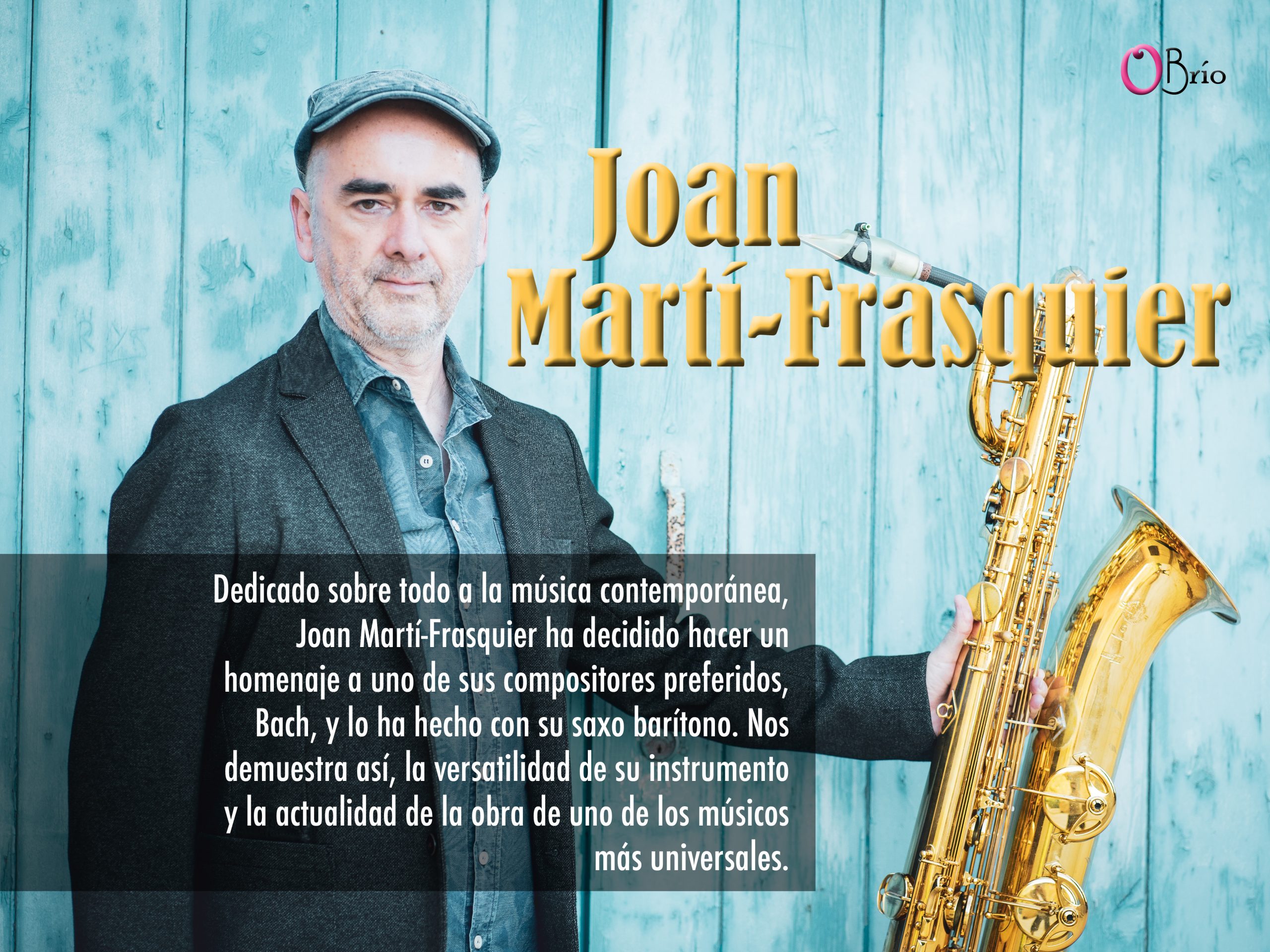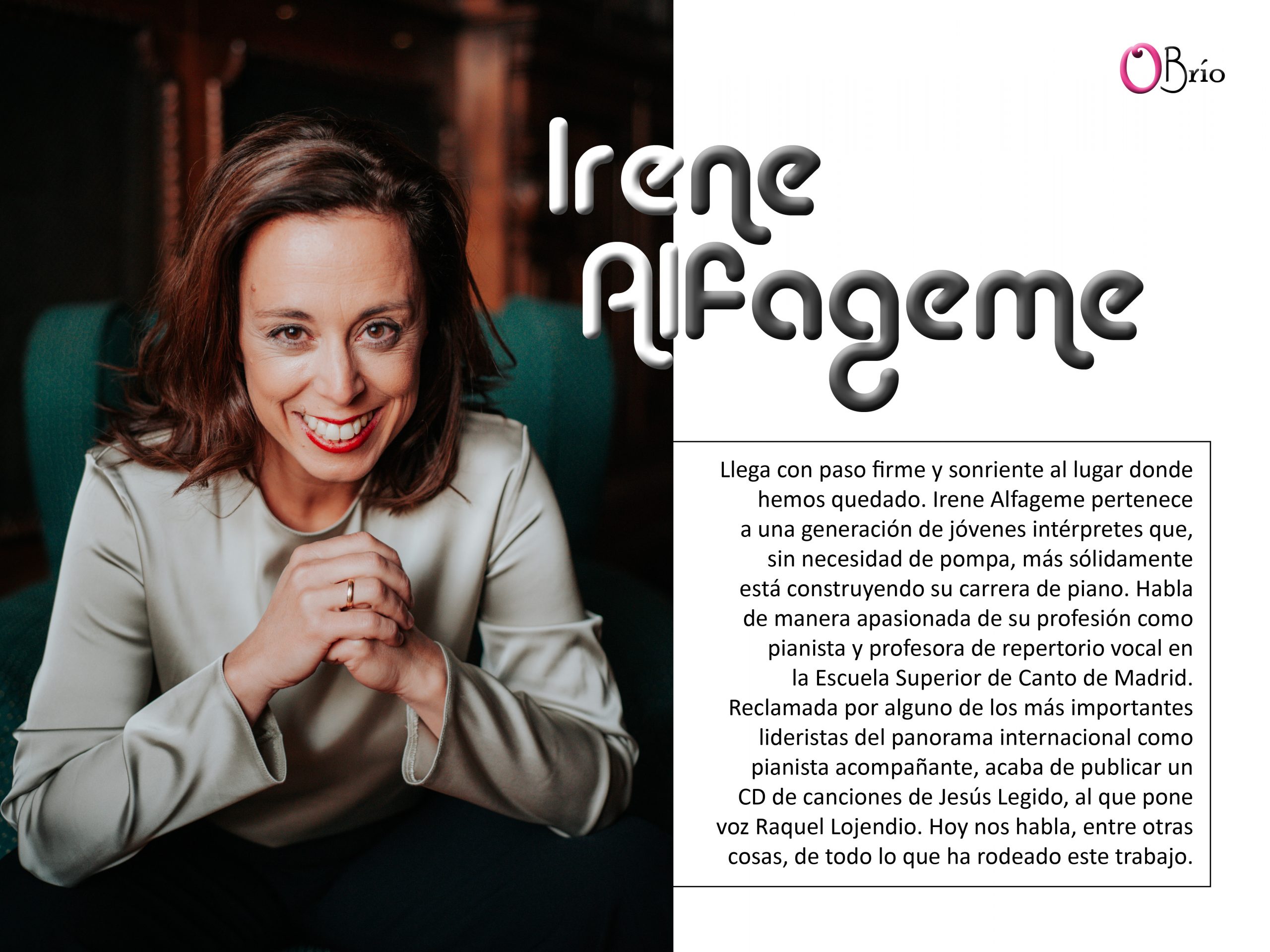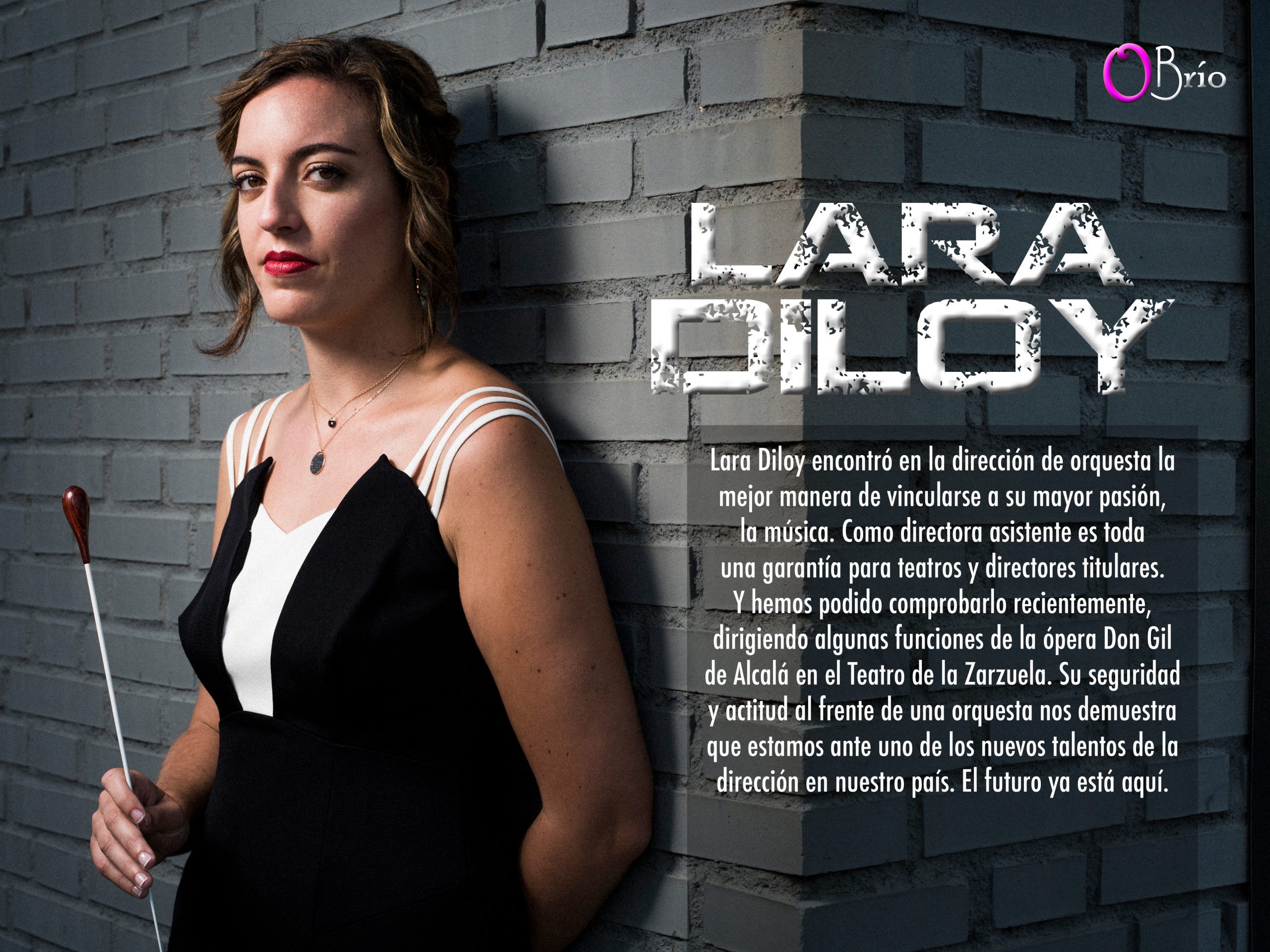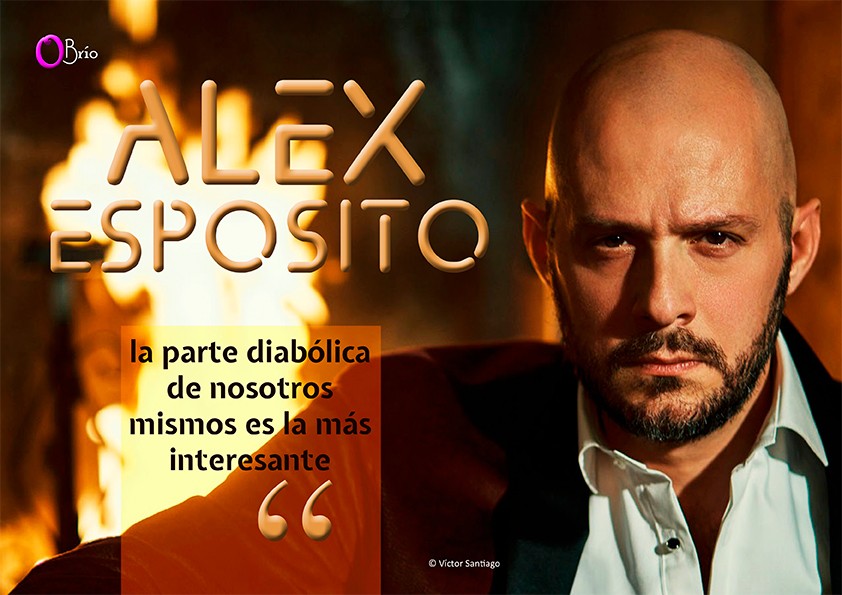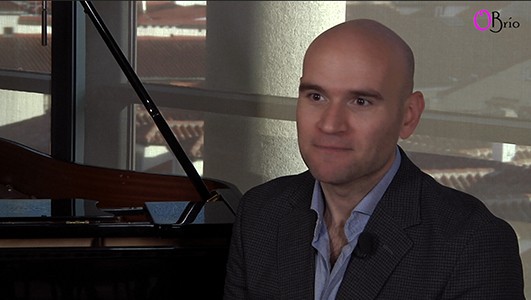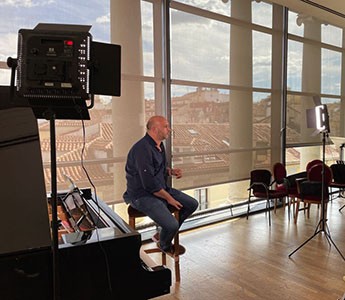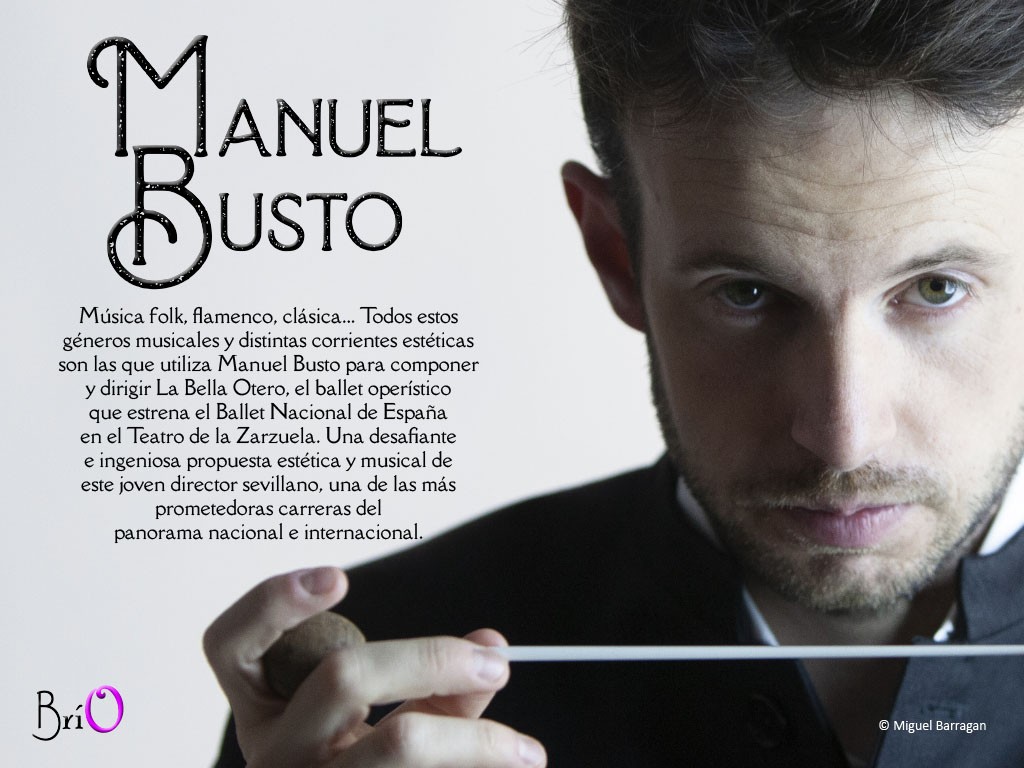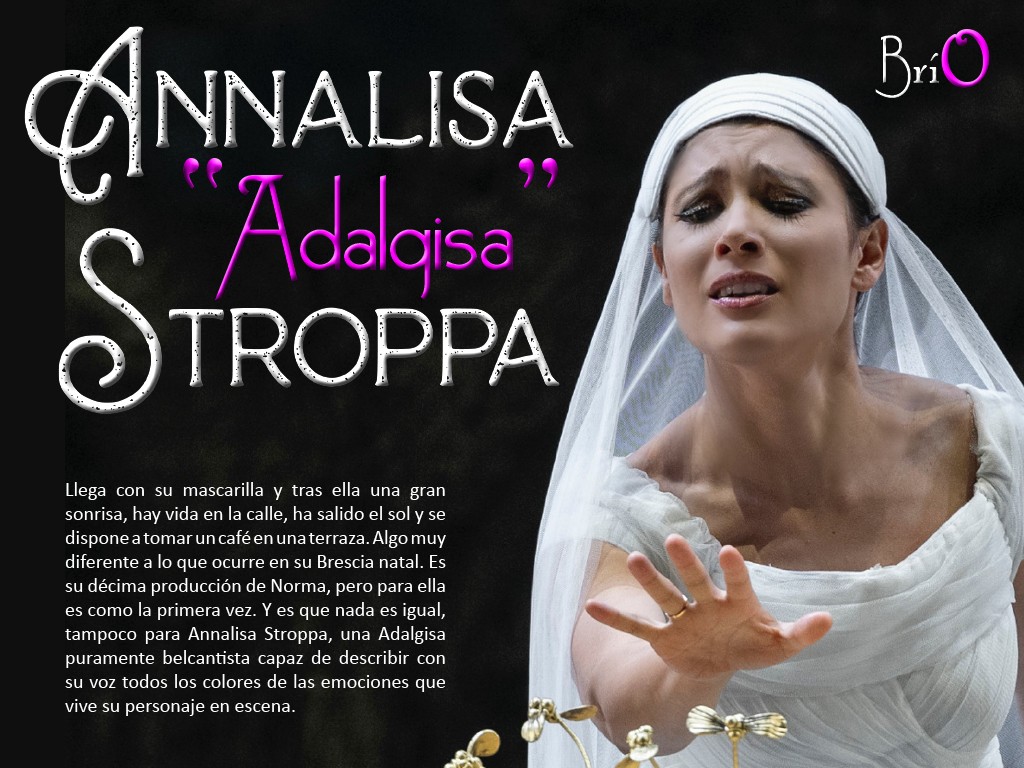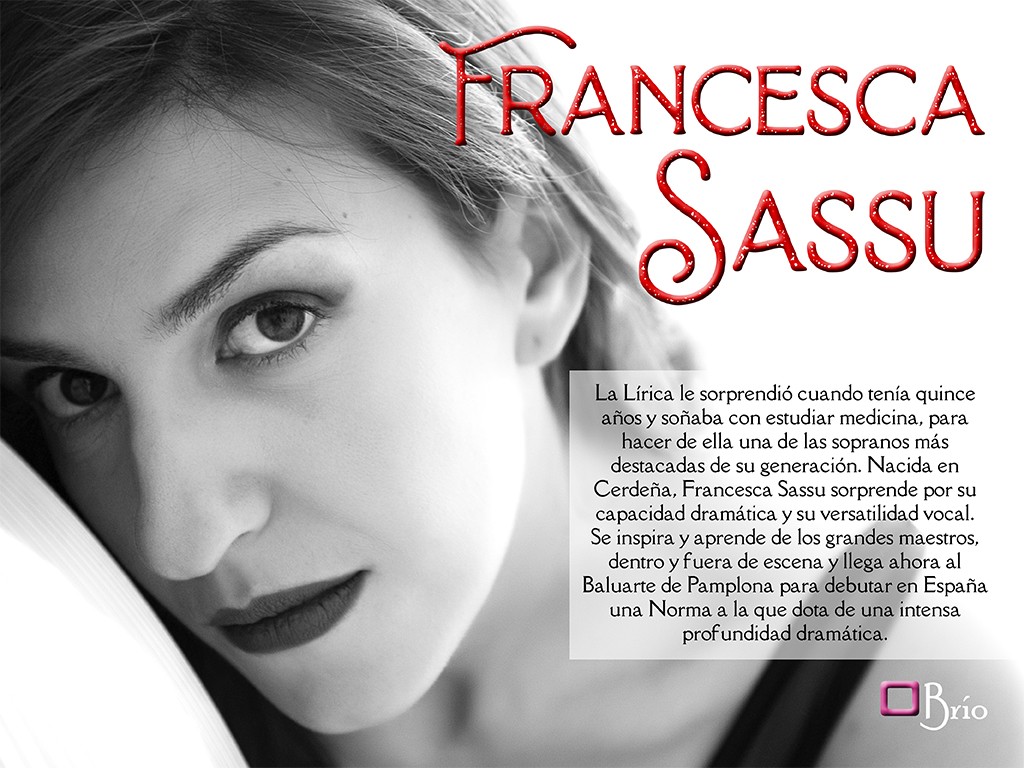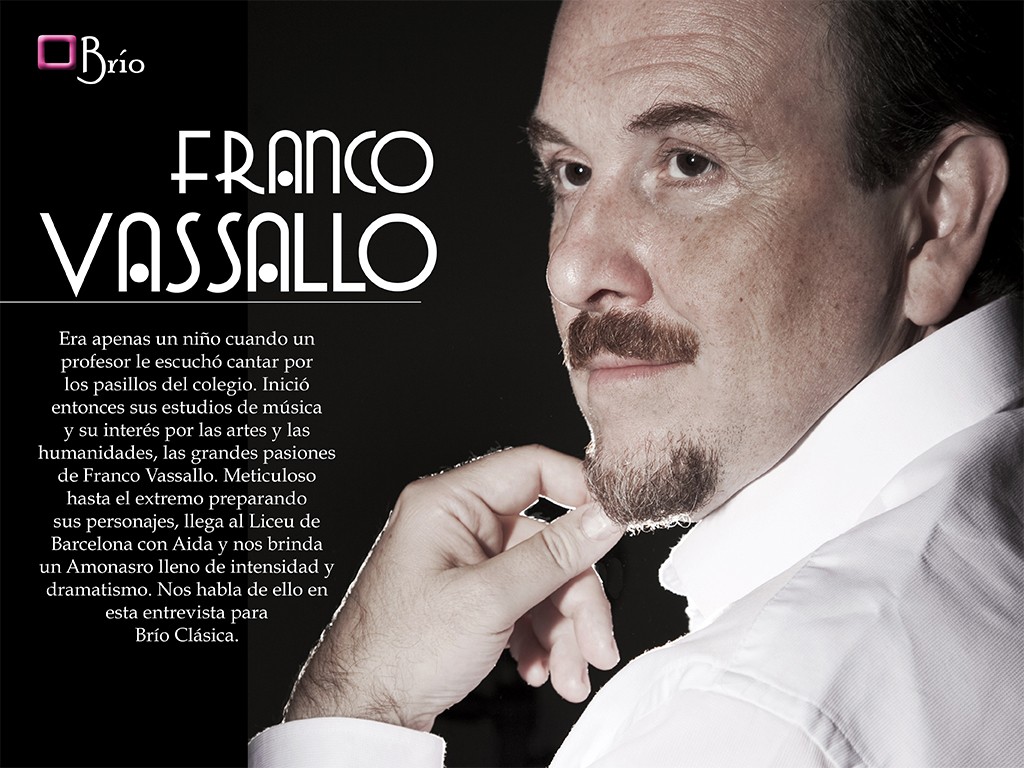Entrevista a la soprano Anita Hartig
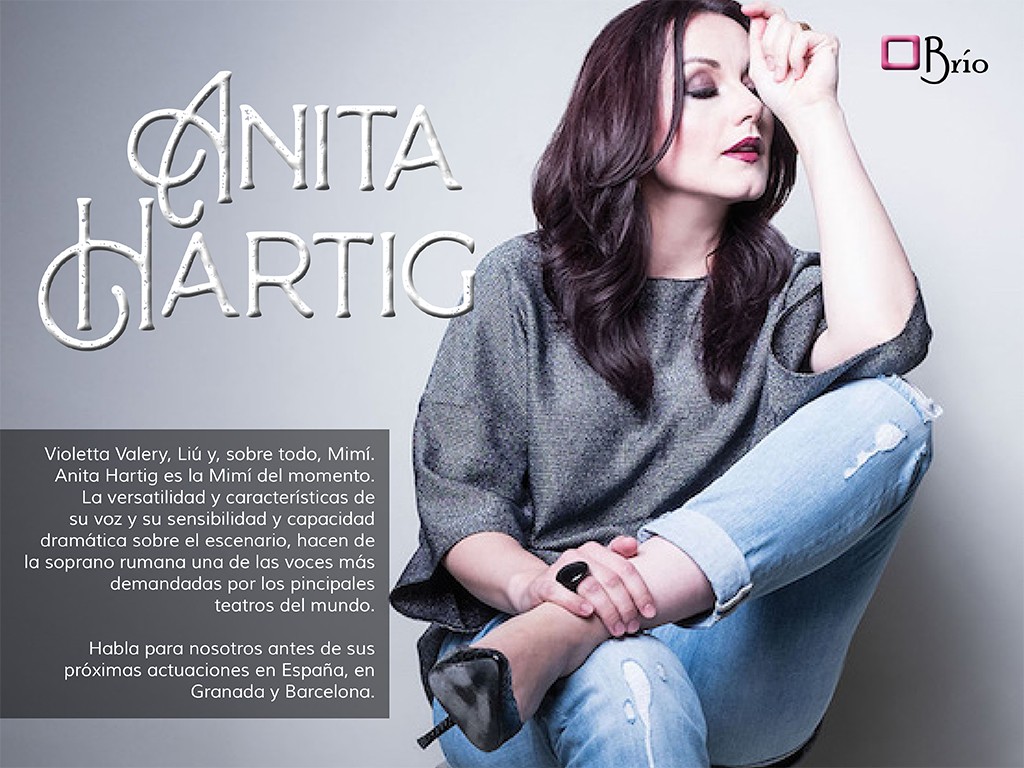
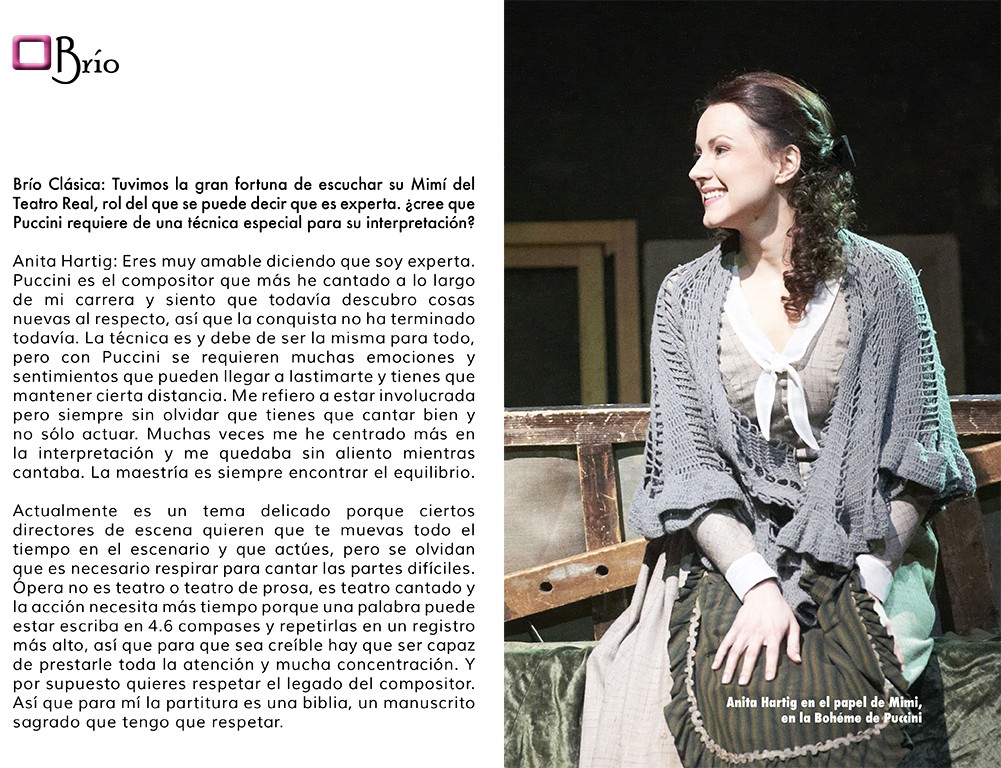
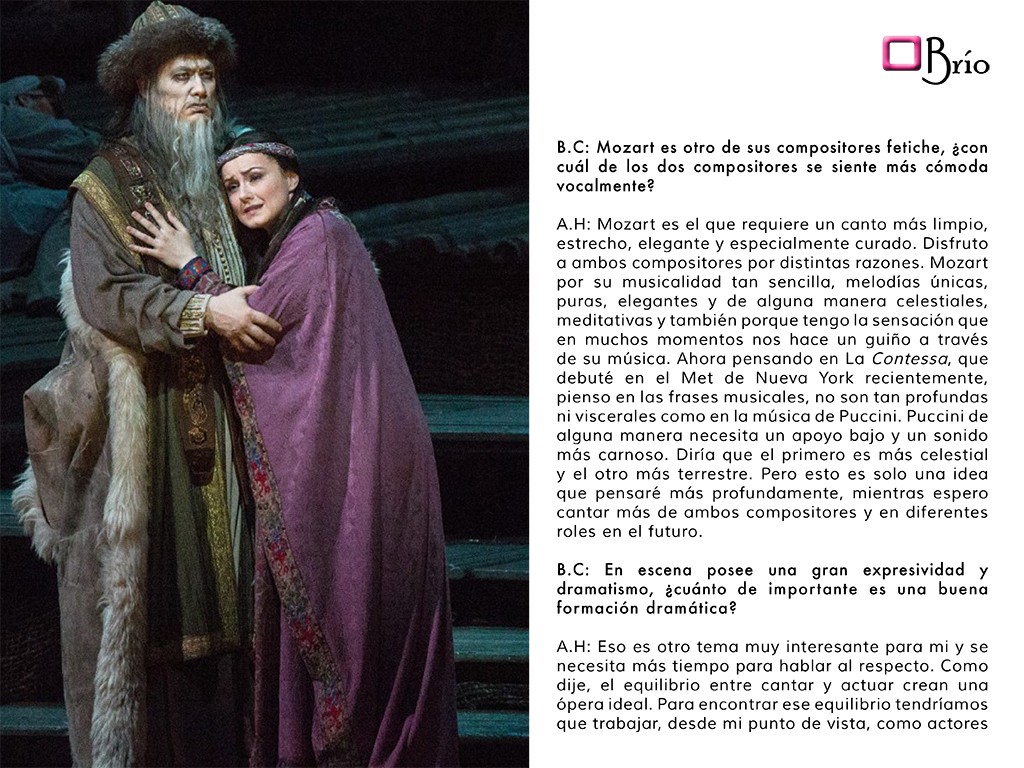
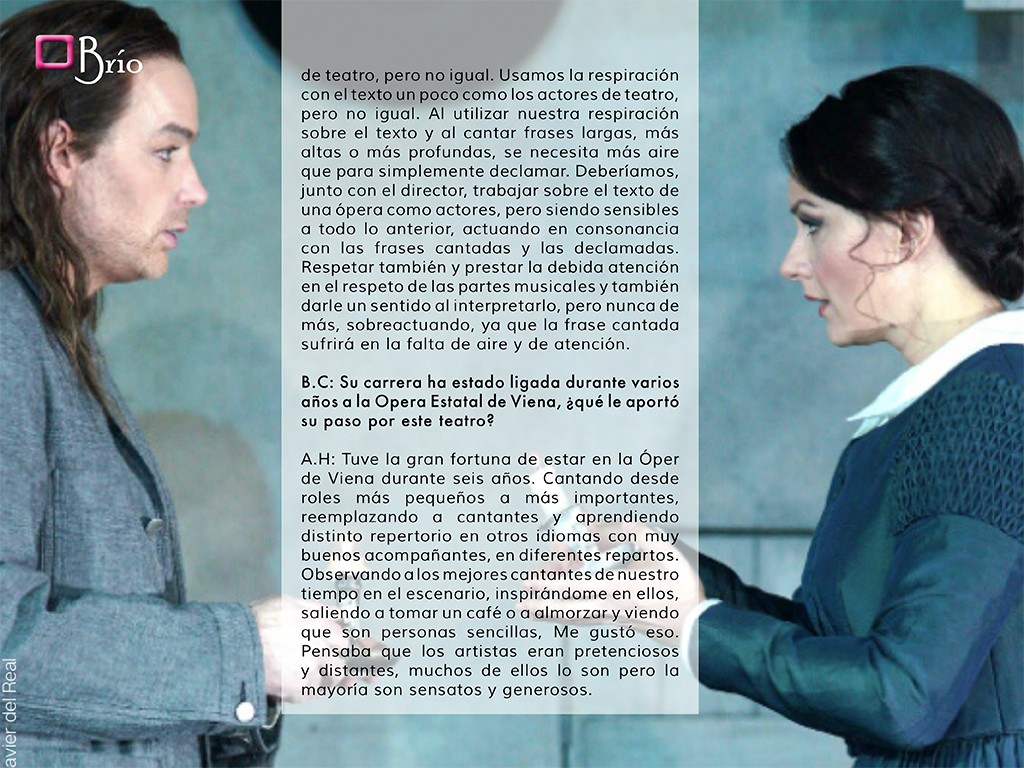
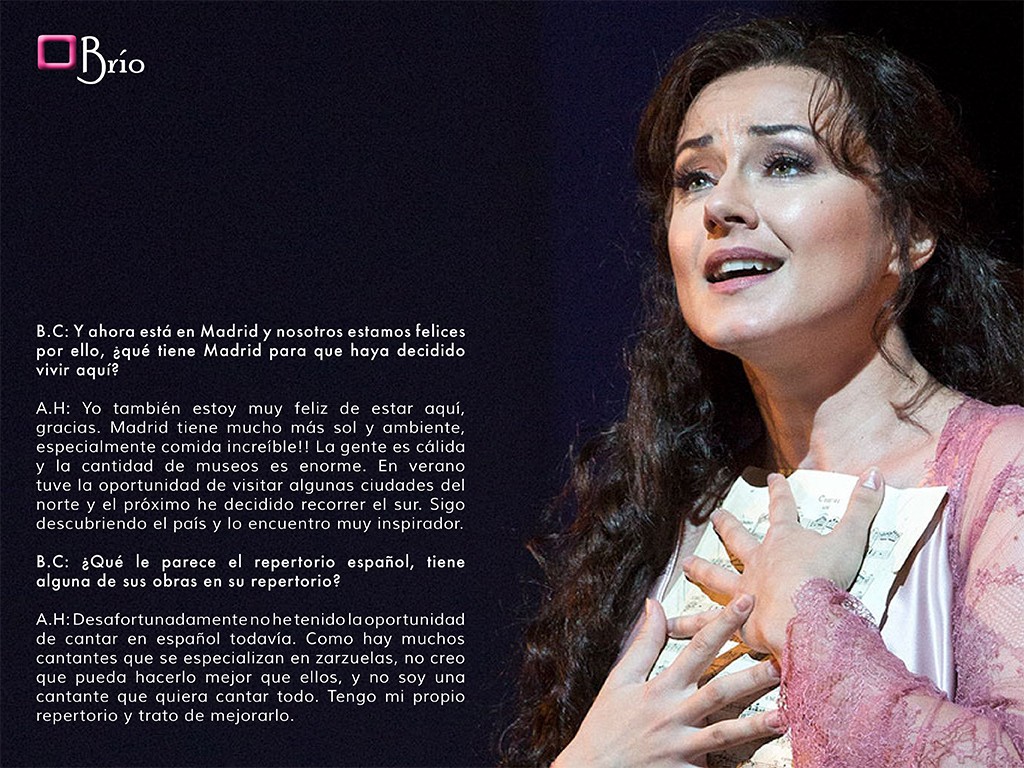
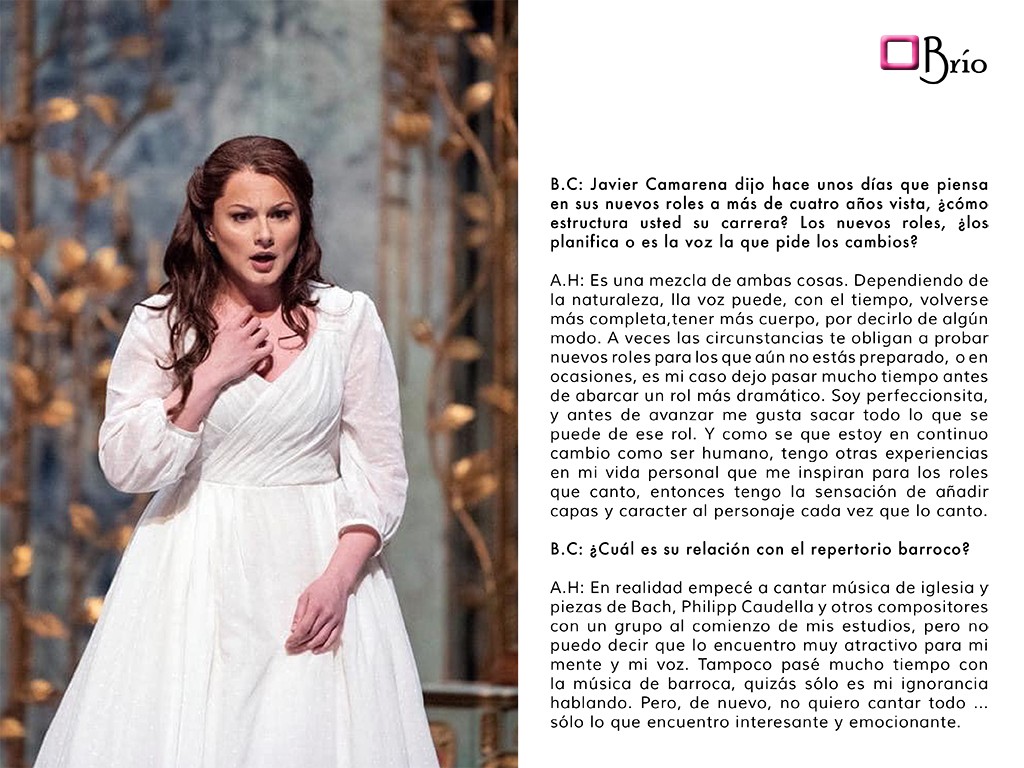
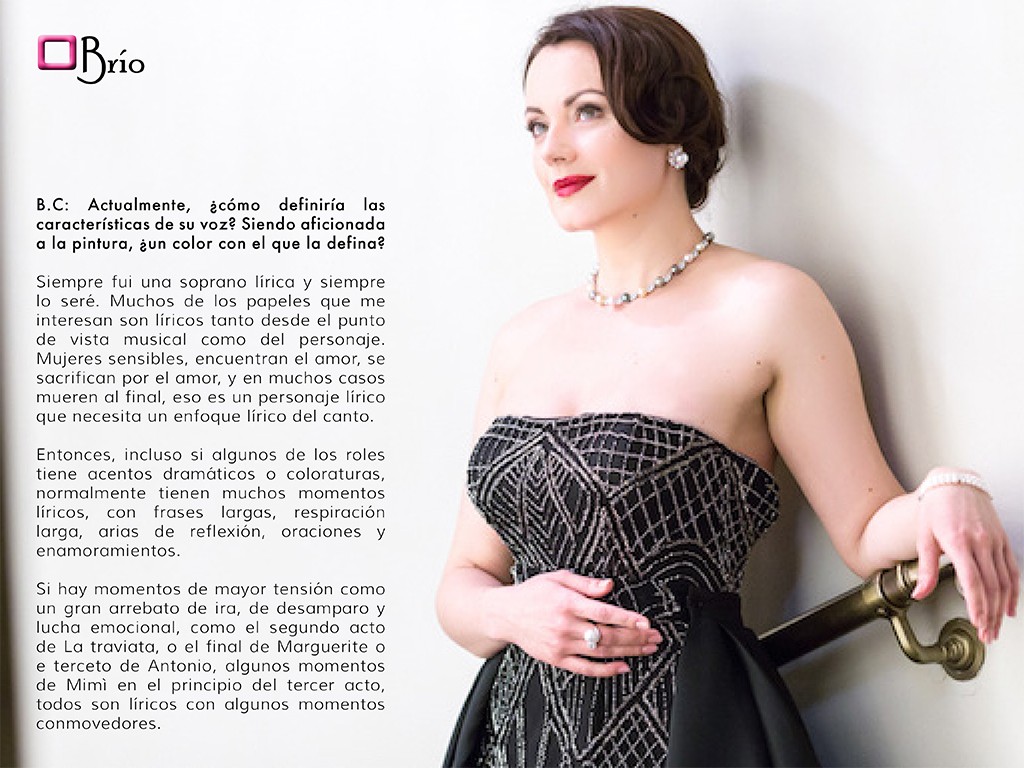
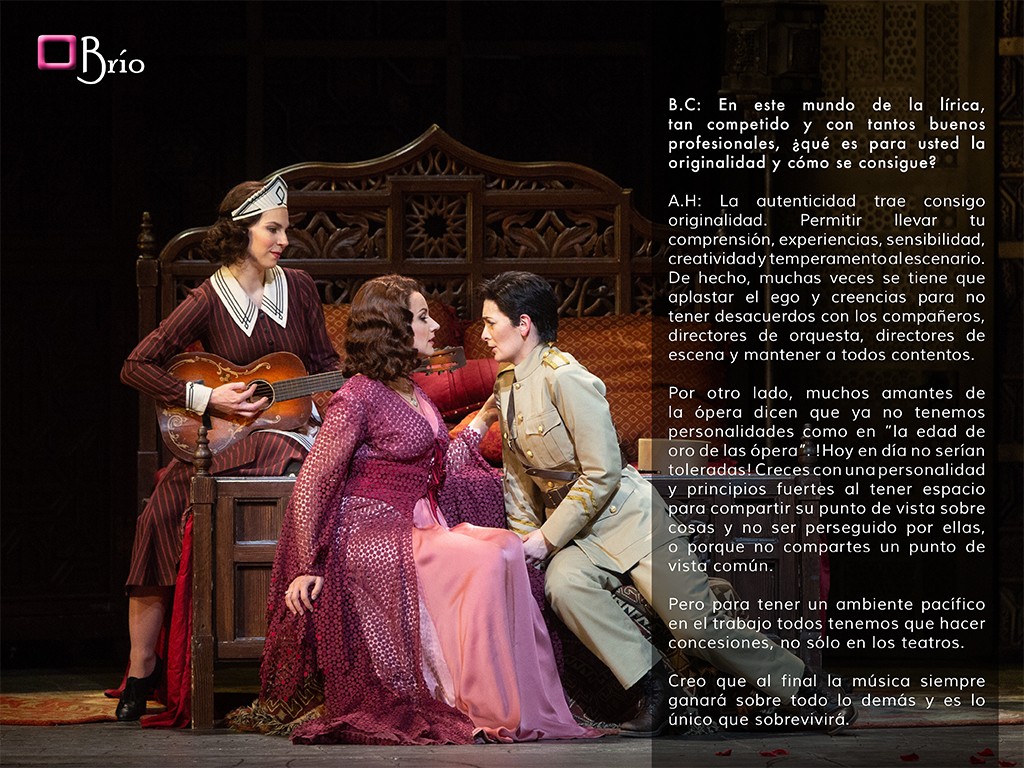
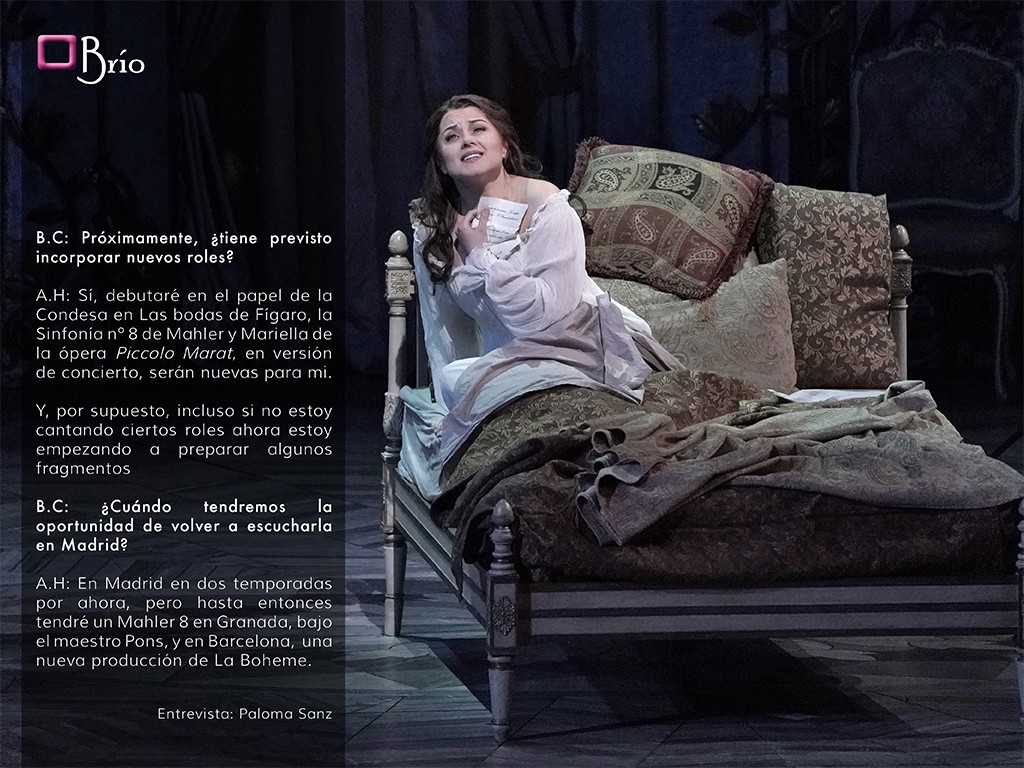
Violetta Valery, Liú y, sobre todo, Mimí. Anita Hartig es la Mimí del momento. La versatilidad y características de su voz y su sensibilidad y capacidad dramática sobre el escenario, hacen de la soprano rumana una de las voces más demandadas por los pincipales
teatros del mundo.Habla para nosotros antes de sus próximas actuaciones en España, en Granada y Barcelona.
Brío Clásica: Tuvimos la gran fortuna de escuchar su Mimí del Teatro Real, rol del que se puede decir que es experta. ¿cree que Puccini requiere de una técnica especial para su interpretación?Anita Hartig: Eres muy amable diciendo que soy experta. Puccini es el compositor que más he cantado a lo largo de mi carrera y siento que todavía descubro cosas nuevas al respecto, así que la conquista no ha terminado todavía. La técnica es y debe de ser la misma para todo, pero con Puccini se requieren muchas emociones y sentimientos que pueden llegar a lastimarte y tienes que mantener cierta distancia. Me refiero a estar involucrada pero siempre sin olvidar que tienes que cantar bien y no sólo actuar. Muchas veces me he centrado más en la interpretación y me quedaba sin aliento mientras cantaba. La maestría es siempre encontrar el equilibrio.Actualmente es un tema delicado porque ciertos directores de escena quieren que te muevas todo el tiempo en el escenario y que actúes, pero se olvidan que es necesario respirar para cantar las partes difíciles. Ópera no es teatro o teatro de prosa, es teatro cantado y la acción necesita más tiempo porque una palabra puede estar escriba en 4.6 compases y repetirlas en un registro más alto, así que para que sea creíble hay que ser capaz de prestarle toda la atención y mucha concentración. Y por supuesto quieres respetar el legado del compositor. Así que para mí la partitura es una biblia, un manuscrito sagrado que tengo que respetar.
B.C: Mozart es otro de sus compositores fetiche, ¿con cuál de los dos compositores se siente más cómoda vocalmente?
A.H: Mozart es el que requiere un canto más limpio, estrecho, elegante y especialmente curado. Disfruto a ambos compositores por distintas razones. Mozart por su musicalidad tan sencilla, melodías únicas, puras, elegantes y de alguna manera celestiales, meditativas y también porque tengo la sensación que en muchos momentos nos hace un guiño a través de su música. Ahora pensando en La Contessa, que debuté en el Met de Nueva York recientemente, pienso en las frases musicales, no son tan profundas ni viscerales como en la música de Puccini. Puccini de alguna manera necesita un apoyo bajo y un sonido más carnoso. Diría que el primero es más celestial y el otro más terrestre. Pero esto es solo una idea que pensaré más profundamente, mientras espero cantar más de ambos compositores y en diferentes roles en el futuro.
B.C: En escena posee una gran expresividad y dramatismo, ¿cuánto de importante es una buena formación dramática?
A.H: Eso es otro tema muy interesante para mi y se necesita más tiempo para hablar al respecto. Como dije, el equilibrio entre cantar y actuar crean una ópera ideal. Para encontrar ese equilibrio tendríamos que trabajar, desde mi punto de vista, como actores de teatro, pero no igual. Usamos la respiración con el texto un poco como los actores de teatro, pero no igual. Al utilizar nuestra respiración sobre el texto y al cantar frases largas, más altas o más profundas, se necesita más aire que para simplemente declamar. Deberíamos, junto con el director, trabajar sobre el texto de una ópera como actores, pero siendo sensibles a todo lo anterior, actuando en consonancia con las frases cantadas y las declamadas. Respetar también y prestar la debida atención en el respeto de las partes musicales y también darle un sentido al interpretarlo, pero nunca de más, sobreactuando, ya que la frase cantada sufrirá en la falta de aire y de atención.
B.C: Su carrera ha estado ligada durante varios años a la Opera Estatal de Viena, ¿qué le aportó su paso por este teatro?
A.H: Tuve la gran fortuna de estar en la Óper de Viena durante seis años. Cantando desde roles más pequeños a más importantes, reemplazando a cantantes y aprendiendo distinto repertorio en otros idiomas con muy buenos acompañantes, en diferentes repartos. Observando a los mejores cantantes de nuestro tiempo en el escenario, inspirándome en ellos, saliendo a tomar un café o a almorzar y viendo que son personas sencillas, Me gustó eso. Pensaba que los artistas eran pretenciosos y distantes, muchos de ellos lo son pero la mayoría son sensatos y generosos.
B.C: Y ahora está en Madrid y nosotros estamos felices por ello, ¿qué tiene Madrid para que haya decidido vivir aquí?
A.H: Yo también estoy muy feliz de estar aquí, gracias. Madrid tiene mucho más sol y ambiente, especialmente comida increíble!! La gente es cálida y la cantidad de museos es enorme. En verano tuve la oportunidad de visitar algunas ciudades del norte y el próximo he decidido recorrer el sur. Sigo descubriendo el país y lo encuentro muy inspirador.
B.C: ¿Qué le parece el repertorio español, tiene alguna de sus obras en su repertorio?
A.H: Desafortunadamente no he tenido la oportunidad de cantar en español todavía. Como hay muchos cantantes que se especializan en zarzuelas, no creo que pueda hacerlo mejor que ellos, y no soy una cantante que quiera cantar todo. Tengo mi propio repertorio y trato de mejorarlo.
B.C: Javier Camarena dijo hace unos días que piensa en sus nuevos roles a más de cuatro años vista, ¿cómo estructura usted su carrera? Los nuevos roles, ¿los planifica o es la voz la que pide los cambios?
A.H: Es una mezcla de ambas cosas. Dependiendo de la naturaleza, lla voz puede, con el tiempo, volverse más completa,tener más cuerpo, por decirlo de algún modo. A veces las circunstancias te obligan a probar nuevos roles para los que aún no estás preparado, o en ocasiones, es mi caso dejo pasar mucho tiempo antes de abarcar un rol más dramático. Soy perfeccionsita, y antes de avanzar me gusta sacar todo lo que se puede de ese rol. Y como se que estoy en continuo cambio como ser humano, tengo otras experiencias en mi vida personal que me inspiran para los roles que canto, entonces tengo la sensación de añadir capas y caracter al personaje cada vez que lo canto.
B.C: ¿Cuál es su relación con el repertorio barroco?
A.H: En realidad empecé a cantar música de iglesia y piezas de Bach, Philipp Caudella y otros compositores con un grupo al comienzo de mis estudios, pero no puedo decir que lo encuentro muy atractivo para mi mente y mi voz. Tampoco pasé mucho tiempo con la música de barroca, quizás sólo es mi ignorancia hablando. Pero, de nuevo, no quiero cantar todo … sólo lo que encuentro interesante y emocionante.
B.C: Actualmente, ¿cómo definiría las características de su voz? Siendo aficionada a la pintura, ¿un color con el que la defina?
Siempre fui una soprano lírica y siempre lo seré. Muchos de los papeles que me interesan son líricos tanto desde el punto de vista musical como del personaje. Mujeres sensibles, encuentran el amor, se sacrifican por el amor, y en muchos casos mueren al final, eso es un personaje lírico que necesita un enfoque lírico del canto.
Entonces, incluso si algunos de los roles tiene acentos dramáticos o coloraturas, normalmente tienen muchos momentos líricos, con frases largas, respiración larga, arias de reflexión, oraciones y enamoramientos.
Si hay momentos de mayor tensión como un gran arrebato de ira, de desamparo y lucha emocional, como el segundo acto de La traviata, o el final de Marguerite o e terceto de Antonio, algunos momentos de Mimì en el principio del tercer acto, todos son líricos con algunos momentos conmovedores.
B.C: En este mundo de la lírica, tan competido y con tantos buenos profesionales, ¿qué es para usted la originalidad y cómo se consigue?
A.H: La autenticidad trae consigo originalidad. Permitir llevar tu comprensión, experiencias, sensibilidad, creatividad y temperamento al escenario. De hecho, muchas veces se tiene que aplastar el ego y creencias para no tener desacuerdos con los compañeros, directores de orquesta, directores de escena y mantener a todos contentos.
Por otro lado, muchos amantes de la ópera dicen que ya no tenemos personalidades como en “la edad de oro de las ópera”. !Hoy en día no serían toleradas! Creces con una personalidad y principios fuertes al tener espacio para compartir su punto de vista sobre cosas y no ser perseguido por ellas, o porque no compartes un punto de vista común.
Pero para tener un ambiente pacífico en el trabajo todos tenemos que hacer concesiones, no sólo en los teatros.
Creo que al final la música siempre ganará sobre todo lo demás y es lo único que sobrevivirá.
B.C: Próximamente, ¿tiene previsto incorporar nuevos roles?
A.H: Sí, debutaré en el papel de la Condesa en Las bodas de Fígaro, la Sinfonía nº 8 de Mahler y Mariella de la ópera Piccolo Marat, en versión de concierto, serán nuevas para mi.
Y, por supuesto, incluso si no estoy cantando ciertos roles ahora estoy empezando a preparar algunos fragmentos
B.C: ¿Cuándo tendremos la oportunidad de volver a escucharla en Madrid?
A.H: En Madrid en dos temporadas por ahora, pero hasta entonces tendré un Mahler 8 en Granada, bajo el maestro Pons, y en Barcelona, una nueva producción de La Boheme.
Entrevista: Paloma Sanz

